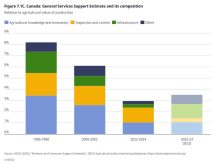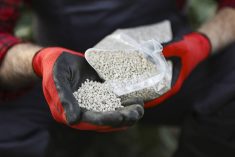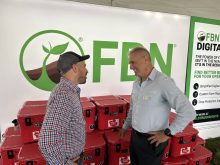The Western Canadian Wheat Growers and Grain Growers of Canada are calling for the federal government to drop its goal of a 30 per cent reduction in fertilizer emissions in favour of an ‘intensity’ based goal.
“With the threat of global food insecurity, we must develop an approach that aligns the imminent need for increased food production with the long-term goal of increasing on-farm sustainability,” said GGC chair Andre Harpe in an Aug. 31 news release.
That was the final day for people and groups to submit feedback on the federal government’s emission reduction plan. Both groups published their responses.
Read Also

New ranking elevates Assiniboine College to national research elite
Brandon’s Assiniboine College is 47th in a national ranking measuring research dollars and output at publicly funded institutions in Canada.
In separate submissions, both groups called for the government to switch its goal to a reduction in emissions relative to amount of crop produced instead of total emissions.
In its submission, WCWG said reduction in emissions “can only be achieved through incremental technology improvements and wholesale reduction in fertilizer.”
Reduction in fertilizer use, which so far, the federal government hasn’t for, would reduce crop yields, it added.
“There are many countries that will likely have food shortages if our grain is not available to them.”
The WCWG said if the federal government wants Canada to increase agriculture exports to $85 billion by 2025 from $55 billion in 2015, it can’t shackle farmers through reduced fertilizer use.
Both groups asked the federal government to support adoption of 4R nutrient stewardship (application at the right time, right source, right place, right rate).
“4R Nutrient Stewardship is exactly the sound science base needed to advance agricultural producers to remain both environmentally responsible and competitive,” WCWG said.
“Government support would aid in hastening the adoption of practices like 4R Nutrient Stewardship,” GGC said in its submission. “One area of program consideration could involve financial support towards soil testing more frequently to ensure the right rate of application is clearer to producers.”
GGC said the government needs to incorporate 4R management practices into its National Inventory Report (NIR). Currently, emissions calculations do not take management practices into account.
“If we do not factor in these efforts, we fail to capture an accurate picture of on-farm sustainability,” it added.
“We understand the need to hasten the adoption of technologies and practices that could reduce emissions,” Harpe said in the GGC release. “Economic realities and on-farm agronomic necessities will dictate what is feasible.
“As part of Canadian grain farmers’ ongoing leadership, we continue to work towards developing practical on-farm policy that ensures sustainability and competitiveness.”














